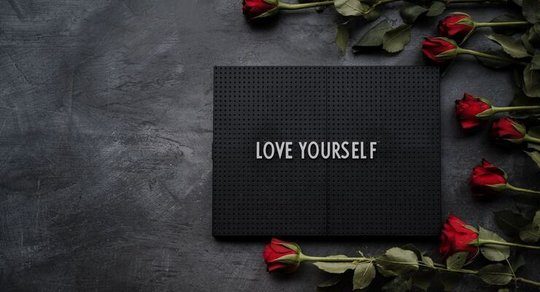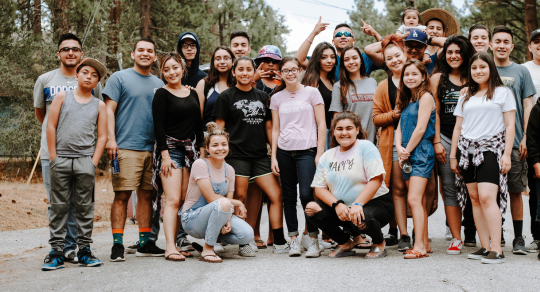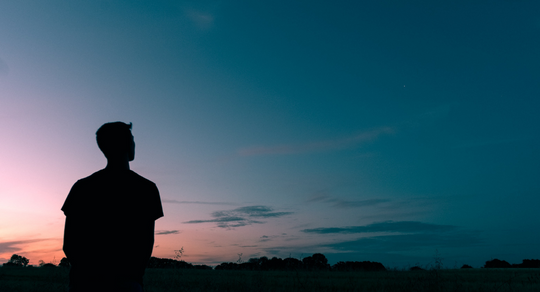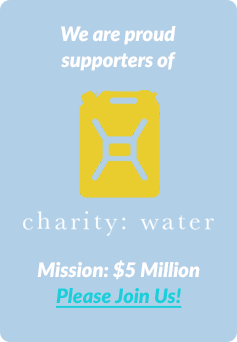In relationships, we tend to settle into our automatic ways of being. For example, in my relationship with my husband I’m the social butterfly, and he’s the homebody. I’m the organized planner; he prefers to decide what’s next in the moment.
It’s wonderful and helpful to know your strengths and weaknesses so that together you can navigate life/work/projects to your best abilities. But when we stop questioning or being aware of these unspoken roles we play in our relationships, we can become stuck and stagnant.
Using the earlier example of my being a social butterfly, this sets me up to always be a social butterfly. When I notice I’m feeling low on energy and want to be alone instead of joining a gathering, I question and doubt myself and my identity. I’m known to be a socialite, not a recluse, what is wrong here?
Nothing is wrong; we just don’t live in a black and white world.
When we start to look outside of our automatic traits and ways of being that we have settled into with others, it opens up the space for growth, increased connection and understanding. Here’s a true story about me to illustrate this point.
I’ve been with my husband for 21 years. Since we started dating at 18, people would say I’m the one that has it all together.
With these reflections from others, coupled with our automatic ways of being we brought to the relationship, we have unconsciously created the agreement that I’m the organized, together, better partner. It plays perfectly into my automatic tendencies to be a perfectionist and high achiever.
Recently, our relationship had become stagnant; it was not growing and we started avoiding one another. I didn’t feel connected and didn’t know what to do about it. Through my own personal development work I realized that I had blamed my husband for who he was not.
I thought, “If only he was xyz then I could ask for his support on this challenging thing I’m going through. If only I was in my dream relationship, then I could get that support that I so desperately want.”
That led me to an important question: If this was my dream relationship, what would I do right now?
The answer hit me like a ton of bricks. If it was my dream relationship, I would approach my husband with the challenge and ask for support.
I wasn’t doing this, therefore I was not contributing to my dream relationship. How could my husband ever step up to the plate to support me if I was withholding?
It was then I realized that I was being a “bad” partner. Said another way, I was contributing to what wasn’t working in our relationship. It allowed me to see that I had been operating under the unconsciously agreed upon expectation that I was the “perfect” partner and any wrongdoings or imperfections must be because of him.
I shared this with my husband and apologized for who I was being that was contributing to our partnership not working.
He was so receptive and supportive—of course! It was in my mind that I had made up that he wouldn’t be. When we think someone will be the way they have always been, or the way we think them to be, we don’t give them a chance to show up differently.
It was vulnerable and courageous for me to have this conversation with him. I showed up differently, which allowed him to show up differently.
Since then he has opened up to me about where he hasn’t been the best partner. We have been more closely connected now than we have been in years!
I shared this story with a close colleague of mine, who later thanked me for inspiring her. She had taken that inspiration and applied it to her relationship with her manager, which was strained and is now flourishing. I was touched, and I want to now share with you what I see as the key ingredients for creating connection in any relationship:
- Ownership. You must be willing to own your part in the current relationship you have created. It takes two to tango. What are you willing to be responsible for? How have you contributed to where you both are today?
- Vulnerability. As much as I had wished there was a way around this, there is not. Brené Brown brilliantly says, “When we dare to drop the armor that protects us from feeling vulnerable, we open ourselves to the experiences that bring purpose and meaning to our lives.”
- Openness. Can you listen to and truly hear what they are saying from a neutral space, with generosity?
- Creation. What naturally comes next is creating how you want it to go from here. Some questions to start with are: What would be ideal? How do we really want this relationship to go? What do I need? What do you need?
This isn’t a one-time quick fix for relationships. I don’t believe that is possible. I see relationships as a way to grow our self-awareness and continue to step into our highest and best selves, if we choose them this way. From here, others in our lives become our teachers.
Are you willing to look for the lessons these teachers are bringing you?






